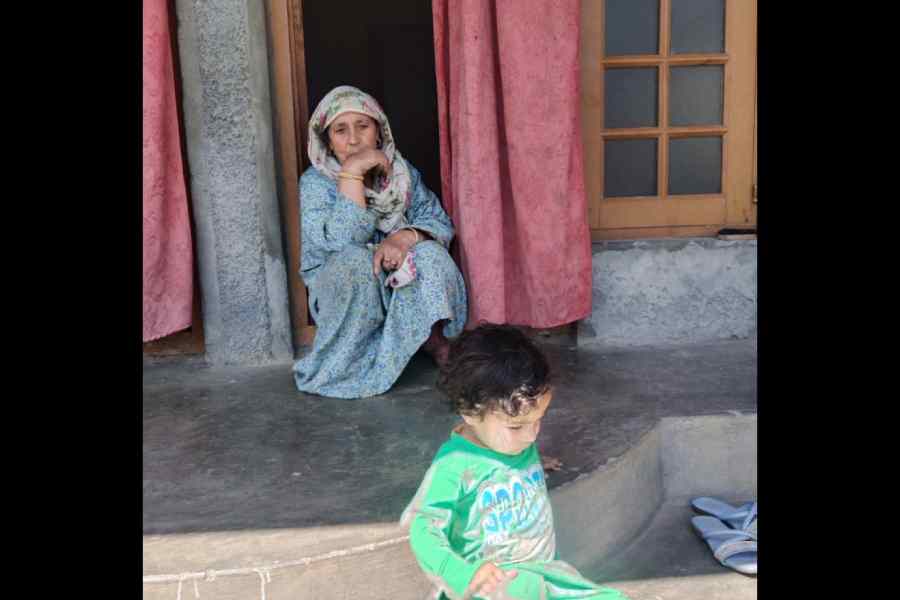The battle-weary youths of Karimabad and other "hot-blooded" villages in south Kashmir have come to understand the true power of “democracy” the tough way.
In the first Assembly elections in a decade, following the 2019 revocation of Article 370, the 16 constituencies of south Kashmir recorded over 50 per cent voter turnout on Wednesday.
Rajpora, of which Karimabad is a part, saw a turnout of 46 per cent. The turnout in 24 constituencies across Jammu and Kashmir that went to the polls in the first phase on Wednesday was 58.85 per cent, the highest in 35 years.
If south Kashmir donned the mantle of azadi after the killing of Hizbul poster boy Burhan Wani in 2016, villages like Karimabad would have been its epicentre. Around 100 people died in the agitation that year and hundreds picked up arms over subsequent years.
The answer to the death of every militant, who fell fighting security forces here, was another youth willing to pick up arms.
The village boasts of a "martyrs' graveyard", where nearly three dozen militants or civilians who died in firing by the forces are buried. And for every protest dispersed by the forces using pellets, bullets and smoke canisters, the answer was more protests.
Dozens were hit by pellets and several were blinded in one eye. The protests abated because of the government's iron-fist policy after the 2019 scrapping of special status.
But the villagers' ordeal never ended. Arrests, harassment and midnight raids continue.
Villagers say more than a dozen youths are in detention under the Public Safety Act. A security camp has come up here to keep a watch over the villagers.
The youths were again on the roads on Wednesday to exact revenge — this time not with stones but with votes.
A stone-thrower, who landed in jail around half a dozen times during the troubled years, told this newspaper at the peak of the protests in 2017 that if a truckload of arms was dropped here, there would be as many hands willing to pick them up.
On Wednesday the youth, whose name is being withheld for his safety, heaped praise on Omar Abdullah, going door to door to ferry voters to the polling booth asking them to vote for the former chief minister.
“There was a time when only old men sided with the NC (Omar's National Conference). But today even the youth are with them here. If the BJP is telling you that people are coming out to vote, courtesy 2019, they are right. But you should also know it is not to vote for them but to vote against them,” he said.
“We want an Assembly that safeguards our rights, gives us relief from non-local bureaucrats, protects us from daily humiliation and offers us jobs.”
An unemployed postgraduate sitting next to him said the village was paying a huge price for its past.
“Not all people participated in those protests but the entire village was persecuted. We have been blacklisted for jobs. Getting private jobs is also difficult. There are no jobs as the new reservation policy gives 70 per cent jobs to 30 per cent of the population,” he said.
In many places, there were long queues of enthusiastic voters waiting for their turn to vote. The anger against the 2019 changes was palpable. They were out to punish not just the BJP but also the PDP, which had joined hands with it for government formation in 2015.
A horrific past
Some families, however, stayed away from the elections.
Zainab Lone was one of them. She lost her elder son, Abid Hussain, an MBA from Bengaluru, to firing by security forces in December 2018.
“My son had a three-month-old daughter from his Indonesian wife. He had gone out to buy milk for his daughter. On the way, an army vehicle (on anti-militancy operations) overturned. They panicked and opened fire on civilians, killing my son and five others,” said Zainab, a retired government teacher.
“Nobody offered us any support. My daughter-in-law left for her home in Indonesia sometime later. She died of a heart attack in 2021. My granddaughter is six and lives with an aunt there. We have got nothing but pain from the government. So why vote?” Lone said.











